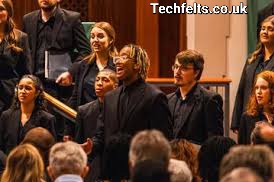In a world where environmental crises are escalating—deforestation, climate change, species extinction, and habitat destruction—the need for conservation has never been more urgent. Yet, amid the overwhelming challenges, a powerful truth remains: one voice can ignite a global movement. This is the core belief behind VoiceofConservation.org/, a platform dedicated to amplifying the call for wildlife protection, ecological balance, and sustainable living. But how does a single voice grow into a chorus of change? How can individuals, no matter how small their actions may seem, contribute to a worldwide conservation revolution? This article explores the transformative power of advocacy, storytelling, and collective action in shaping the future of our planet.
The Power of One: How Individual Action Creates Ripple Effects
History has shown that some of the greatest movements began with a single person. Think of Jane Goodall, whose groundbreaking research on chimpanzees reshaped our understanding of animal intelligence and conservation. Or Greta Thunberg, whose solitary school strike for climate action inspired millions. VoiceofConservation.org/ operates on the same principle—that passionate individuals, armed with knowledge and determination, can influence policy, shift public opinion, and mobilize communities.
When one person speaks up—whether by sharing an article, supporting a conservation project, or reducing their carbon footprint—they inspire others to do the same. Social media, documentaries, and grassroots campaigns have proven that awareness spreads exponentially. A single viral post about plastic pollution can lead to nationwide bans on single-use plastics. A well-told story about an endangered species can spur donations, volunteer efforts, and legislative changes. The first voice matters because it breaks the silence.
The Role of Storytelling in Conservation
One of the most effective tools in conservation is storytelling. Facts and statistics alone rarely move people to action, but stories create emotional connections. VoiceofConservation.org/ leverages this by sharing compelling narratives—whether it’s the journey of a rescued elephant, the struggle of indigenous communities protecting their land, or the scientists working tirelessly to save coral reefs.
Consider the impact of documentaries like “The Cove” (which exposed dolphin hunting in Japan) or “Blackfish” (which changed public perception of marine parks). These stories didn’t just inform—they provoked outrage, empathy, and action. Similarly, VoiceofConservation.org uses blogs, videos, and social media to highlight untold conservation stories, making complex environmental issues relatable and urgent.
From Awareness to Action: How Small Steps Lead to Big Change
Awareness is the first step, but action is the ultimate goal. VoiceofConservation.org/ doesn’t just highlight problems—it provides solutions. Here’s how individuals can transition from passive concern to active participation:
1. Educate Yourself and Others
- Follow credible conservation news sources.
- Share articles, infographics, and documentaries to spread awareness.
- Debunk myths (e.g., “climate change isn’t real,” “wildlife conservation doesn’t affect humans”).
2. Support Ethical Organizations
- Donate to wildlife sanctuaries, reforestation projects, or anti-poaching units.
- Volunteer for local cleanups or citizen science programs.
- Choose eco-friendly brands that support conservation efforts.
3. Adopt Sustainable Lifestyle Changes
- Reduce plastic use (bring reusable bags, bottles, and containers).
- Eat less meat (industrial farming is a major deforestation driver).
- Support renewable energy and reduce personal carbon footprints.
4. Advocate for Policy Change
- Sign petitions for stronger environmental protections.
- Contact lawmakers to demand wildlife-friendly policies.
- Vote for leaders who prioritize conservation.
Case Studies: When One Voice Made a Difference
1. The Fight to Save the Vaquita Porpoise
With fewer than 10 individuals left, the vaquita is the world’s most endangered marine mammal. Activists and scientists have used social media campaigns, undercover investigations, and legal battles to pressure Mexico to ban illegal fishing nets in their habitat. While the battle isn’t over, their relentless advocacy has brought global attention to the crisis.
2. The Revival of the Bald Eagle
Once nearly extinct due to DDT pesticide use, the bald eagle’s recovery is a conservation success story. Scientists like Rachel Carson (“Silent Spring”) exposed the dangers of pesticides, leading to bans and breeding programs. Today, bald eagles thrive—proof that policy changes driven by public outcry work.
3. Youth-Led Climate Strikes
Greta Thunberg’s solo protest outside Sweden’s parliament in 2018 sparked the Fridays for Future movement, with millions of students striking worldwide. This youth activism has pushed governments to declare climate emergencies and invest in green energy.
How VoiceofConservation.org/ Amplifies the Movement
This platform serves as a megaphone for conservationists, scientists, and everyday advocates by:
- Publishing in-depth research on endangered species and ecosystems.
- Highlighting grassroots initiatives that need support.
- Connecting volunteers with hands-on conservation projects.
- Providing actionable guides for sustainable living.
Conclusion: The Ripple Effect of One Voice – Join the Movement
The journey of conservation is not a solitary one—it is a collective symphony of voices rising together to defend our planet. VoiceofConservation.org/ stands as proof that a single spark of passion can ignite a wildfire of change. From the scientists who dedicate their lives to research, to the activists who march in the streets, to the everyday individuals who make sustainable choices—every action matters.
History has shown us that transformative movements begin with one person willing to speak up. The fight to save our ecosystems, protect endangered species, and combat climate change is not just for policymakers or experts—it is a responsibility we all share. Whether you share an article, volunteer at a local wildlife sanctuary, reduce your plastic use, or simply educate a friend, you are contributing to a global shift.
Read more: Jacksonville Computer Network Issue: When to Call the Pros



